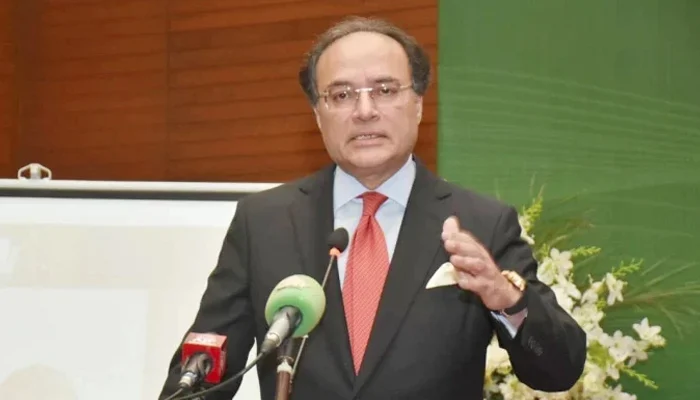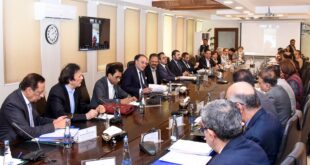
Aftab Maken
Islamabad
Finance Minister Muhammad Aurangzeb has hinted at possible relief for the salaried class in the upcoming budget. He also assured full support for the Pakistan Armed Forces, calling it not just the military’s need but a national necessity. However, he clarified that no final decision has yet been made regarding the salaries of civil and military employees for the next budget.
Speaking at an event in Islamabad and later talking to journalists, the finance minister revealed that India had tried to derail Pakistan’s loan program at the IMF Board. He said efforts were made to stop the meeting and prevent Pakistan’s agenda from being discussed. Despite these attempts, Pakistan’s case was considered on merit.
He stated that Pakistan has successfully met all the targets set by the IMF. Had those targets not been achieved, Pakistan would have faced serious challenges. He confirmed that Pakistan will continue to implement the IMF program. The IMF mission has returned, and constructive discussions were held with the delegation. He added that Pakistan has the full support of the IMF.
He also said that virtual talks with the IMF will continue this week. Again, he made it clear that no decision has been taken yet about civil and military salaries.
Earlier in his speech at the event, the finance minister said the world is acknowledging Pakistan’s economic progress and is surprised by the speed of improvement. He said the government is trying to reduce the tax burden on the salaried class.
Aurangzeb mentioned that work is also being done on pension reforms and that the burden of debt repayments is expected to ease. He said the world is satisfied with Pakistan’s macroeconomic stability, and the government remains committed to long-term reforms.
He emphasized that reducing taxes for the salaried class is a priority. He also pointed out that the budget should not be seen just as a document of income and expenditure, but as a strategic plan. He stressed the need for national unity on the economic front.
The finance minister added that the global community is recognizing Pakistan’s economic improvement, and the significant reduction in interest rates has had a positive impact on the economy.
He said reducing human interference in the Federal Board of Revenue (FBR) would bring more transparency. Reforms are being introduced in the tax system and other sectors. He stressed that the government wants to make it easier for the salaried class to pay taxes, and work is ongoing on pension reforms.
He reiterated that the burden of debt repayments is expected to come down and noted that the world is satisfied with Pakistan’s macroeconomic stability. He reaffirmed the government’s commitment to long-term reforms and said the private sector is playing a crucial role in strengthening the economy.
According to Radio Pakistan, the finance minister further said that the upcoming budget will define a strategic direction for Pakistan’s economy. He emphasized that a budget should not only reflect income and expenses but must also outline a clear strategy for the future. He said the government aims to make this year’s budget more strategic.
Aurangzeb underlined the need for export-led growth and expressed satisfaction that Pakistan’s economy has crossed the $400 billion mark.
In conclusion, he said the international community is recognizing Pakistan’s economic recovery and macroeconomic stability. The government, he said, will continue its current reform agenda, including changes in the tax system, energy sector, public sector institutions, and federal government structure, to achieve sustainable growth. He also stated that the privatization of state-owned enterprises will be accelerated.
 BeNewz
BeNewz




